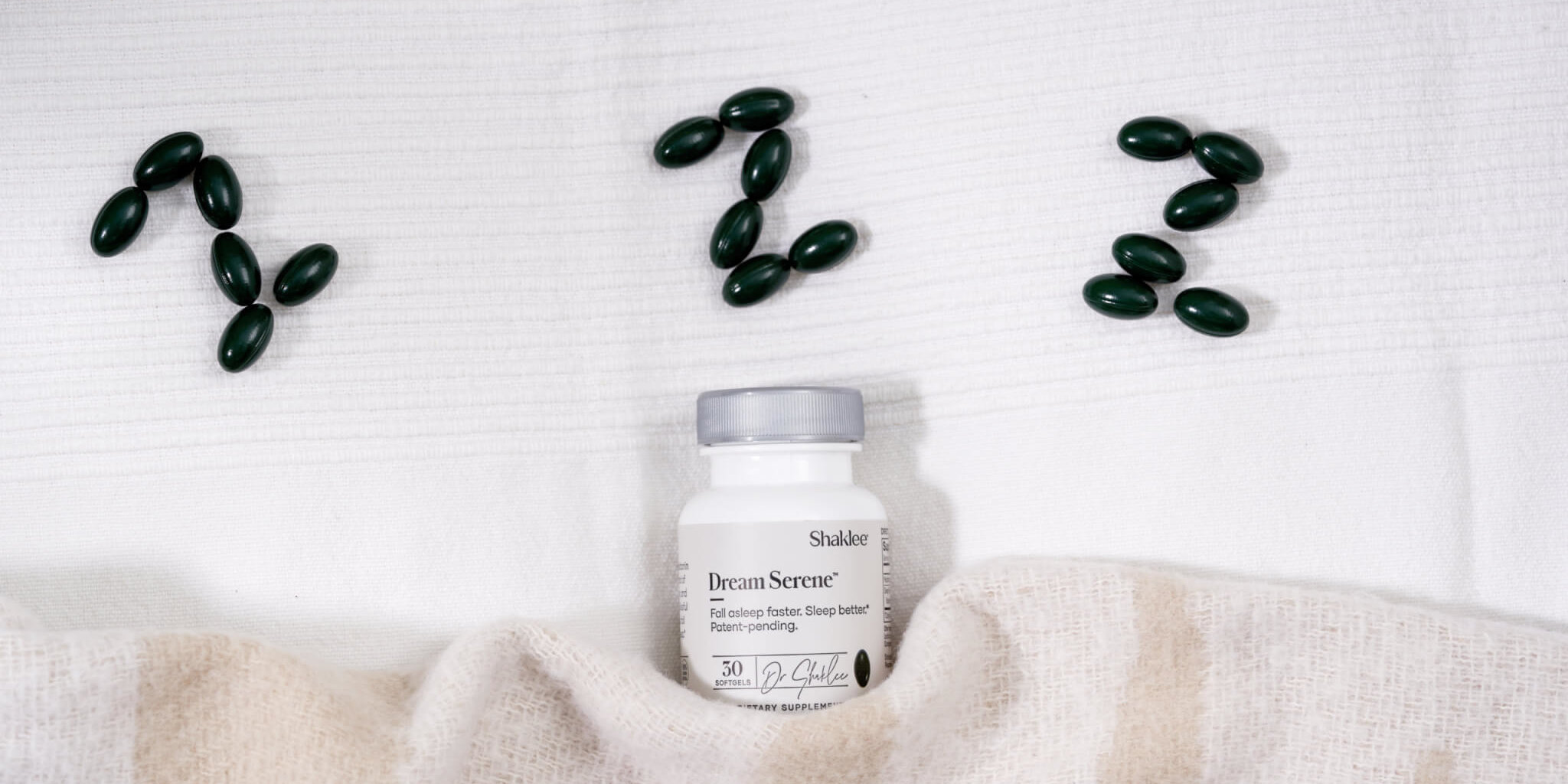Sleep loss affects more people than you might think. The recent Shaklee U.S. Health and Wellness Study reveals that stress, lack of sleep, and low energy are taking their toll on the health and wellness of the millennial generation, the largest adult population segment in the U.S. According to the study, nearly 2 of 3 (60%) millennials have trouble falling asleep at night and half (51%) wake up several times throughout the night. For 25% of respondents, it takes 30 minutes or more to fall asleep, and 83% of respondents have tried tactics to improve sleep.
Sometimes it’s hard to know why we’re losing sleep. We can commonly label it as insomnia or sleep deprivation. But the truth is these two conditions are different! So, let’s talk about how they differ along with a few ways you can regain some of those precious Zzz’s.
What is insomnia?
Insomnia is when you’re not able to get quality sleep despite having plenty of opportunity to sleep. You could be lying in bed all night with the lights off and eyes closed, and you’re not able to sleep. It could be struggling to fall asleep or stay asleep. It could be waking up too early and losing sleep that way. But generally speaking, you don’t choose to have insomnia.
What is sleep deprivation?
Sleep deprivation is when external actions and habits restrict your opportunity to sleep. Some examples are staying up late to study for a test or having an overnight shift at work. Another example is consistently getting fewer than 8 hours of sleep each day over a long period of time. This accumulates into a “sleep debt” that can be harder to fix. In some cases, it may be necessary to skip sleep, like for emergency situations, travel plans, or work demands. But ultimately, the choices you make are what contribute to sleep deprivation.
What you can do to get more Zzz’s
If you have insomnia, it might be a symptom of a sleep disorder, medical condition, or something else entirely. You may want to consider consulting your physician or seeking therapy to nail down the cause.
If you’re sleep deprived, the good news is that you have control over it! A few changes to your habits and sleeping patterns can help improve your quality of sleep. Here are some that you can try:
- Practice better sleep hygiene while you’re in bed so that you’re not working, watching TV, or using your mobile devices in the place that you sleep.
- Try to follow a consistent sleep schedule so that you go to sleep and wake up at the same times.
- Try to adjust your work schedule to allow for more sleep.
- Prioritize sleep by doing your work or homework during the day.
- Avoid alcohol, caffeine, and tobacco products in the evening that will keep you up.
- Try supplementing with Dream Serene™, a patent-pending formula that contains melatonin and a proprietary blend of valerian, lemon balm, and L-theanine to promote more restful sleep.*
- If you have sleep debt, you can schedule a short power nap during the day to recharge. Otherwise, try to limit your naps or eliminate them entirely, especially if they’re late in the day.
Whatever the cause of sleep loss, the best thing you can do is adopt good habits that prioritize sleep. It may take time, but a good night’s rest is around the corner!
| *This statement has not been evaluated by the Food and Drug Administration. This product is not intended to diagnose, treat, cure, or prevent any disease. |






